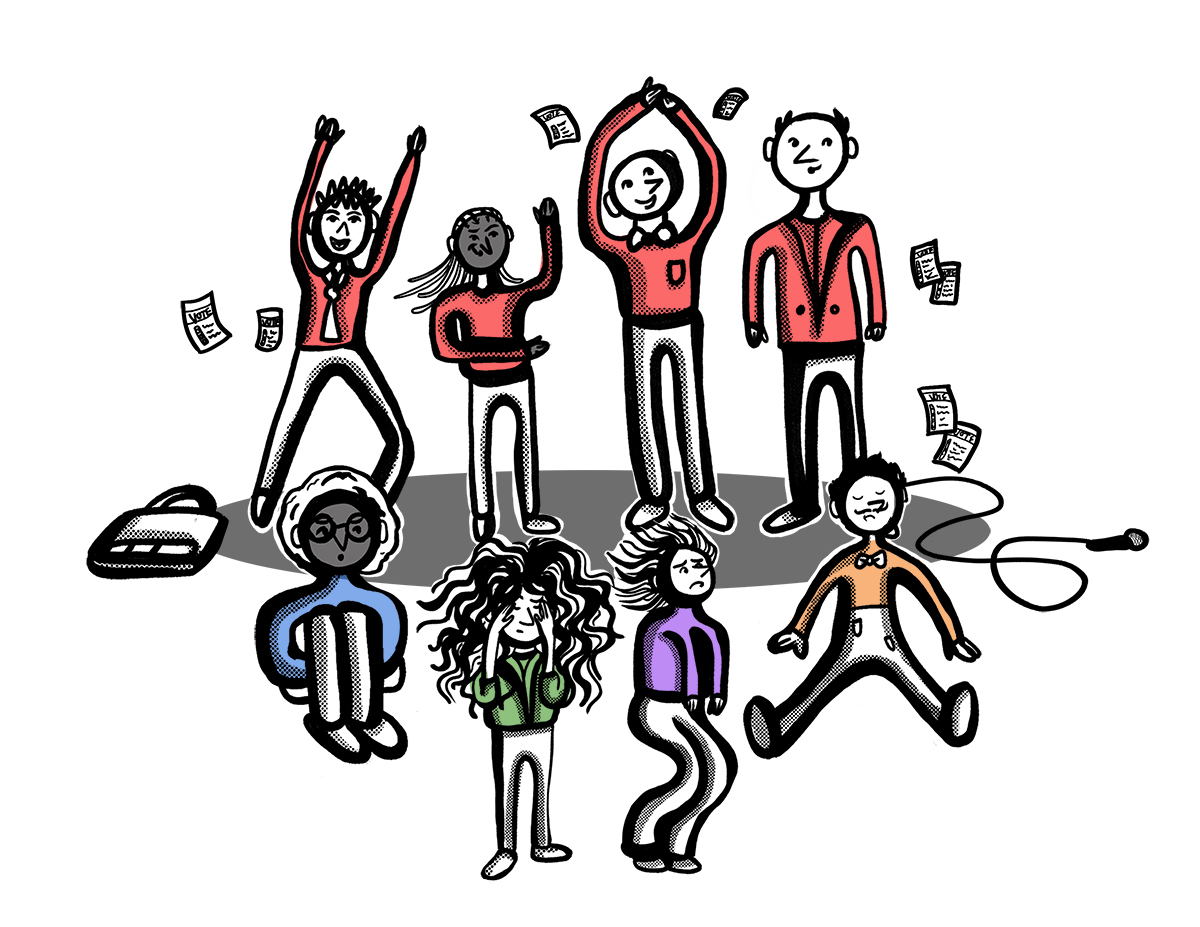Meanwhile, Concordia University witnessed a rather smooth voting procedure on both campuses
Prime Minister Justin Trudeau will continue to lead the country with a minority government, as the Liberal Party won 159 seats on Sept. 20, coming 11 short of a majority. The Conservative Party, led by Erin O’Toole, remains the official opposition with a total of 119 seats.
Costing Canadians an estimated $610 million, the 2021 federal election ended up more expensive than any other in Canadian history, surpassing the 2019 election costs by $100 million. Despite winning two additional seats, the Liberal Party was unable to reach a majority — an objective that pushed Trudeau to call a snap election just two years into his term.
“You are sending us back to work with a clear mandate to get Canada through this pandemic, and to the brighter days ahead, and my friends, that’s exactly what we are ready to do,” stated Trudeau in his victory speech at the end of the election night.
Going forward, the Trudeau government promises to develop a national childcare program, increase the supply of affordable housing, enforce vaccine mandates for federal workers, make clean water more accessible for Indigenous communities, and cut greenhouse gas emissions by 40 to 45 per cent by 2030.
Although voter turnout dropped to 59 per cent this year, mostly due to the COVID-19 pandemic, hundreds of thousands still took part in the election on the Island of Montreal.
Home to the Loyola campus, the Notre-Dame-de-Grâce—Westmount borough reelected its Liberal MP Marc Garneau with 54 per cent of the vote. In the same riding, Concordia graduate Mathew Kaminski came in third place as a Conservative candidate with 14 per cent of the vote.
Voting at the Loyola Chapel has been an overall success with almost no queues on election day, according to the station’s central poll supervisor (CPS) Nevena Jeric. She told The Concordian there were many efforts to inform all students of the voting rules on campus, especially when it comes to their residential address.
“Many students received an email that, as long as they lived in the riding, they could vote on campus. […] We had maybe one or two people who were turned away, but they weren’t surprised either since they were on campus anyway and tried to vote with their friends just in case,” said Jeric.
The supervisor added that, although the younger generation did not have as strong of a showing as expected on election day, many students had likely cast their ballots during the four days of advanced polling. Nationwide, Canadians set a new record for early voting: nearly 5.8 million citizens selected their candidate before election day, representing an 18 per cent increase since 2019.
However, the voting situation was slightly different at the SGW campus downtown.
Charles*, serving as the supervisor of two polling stations in the EV and LB buildings, noted that there was an impressive engagement from young voters. Having supervised federal and provincial elections at McGill University in the past, he observed “a much stronger participation” from the student population at Concordia’s downtown polling stations compared to those at McGill.
During advanced polling, some students had to wait for as long as two hours to cast their ballots due to a high volume of participating citizens. Experiencing major delays was the most common complaint addressed by downtown voters.
To improve the voting process, Charles said that out-of-province students were allowed to leave their mail-in ballots in a designated box at the downtown station. This additional measure was implemented for the first time on campus, making the election process more convenient for those who recently moved to Montreal.
Polling stations closed at 9:30 p.m. on both campuses, and CBC News announced the projected winner of the federal election just an hour later.
Montrealers showed strong support for the Liberal Party, which won 16 out of 18 ridings on the island. One of them is the Dorval-Lachine-LaSalle borough, where Fabiola Ngamaleu Teumeni — a 20-year-old Concordia student representing the NDP — managed to place third with 13 per cent of the vote.
In Quebec, more voters supported the sovereignist Bloc Québécois (32.6 per cent) than the Liberal Party (31.9 per cent). With 33 seats in the House of Commons, the Bloc has achieved its best results since the 2008 federal election.
Nationwide, the Conservative Party won the popular vote by nearly 200,000 ballots. However, since Canada’s electoral system works on a first-past-the-post basis, the winning party was determined by the number of ridings — and therefore, seats — it has won.
This election’s outcome was almost identical to that of 2019, when the Liberal Party also earned over 155 seats and secured a minority government. As the voting took place in the middle of the fourth wave of COVID-19 and broke records for government expenses, many have questioned the urgency and timing of this snap election.
Nevertheless, Justin Trudeau now begins his third term as Canada’s 23rd prime minister.
*Charles requested his last name not be disclosed.
Graphic courtesy of Maddy Schmidt.
